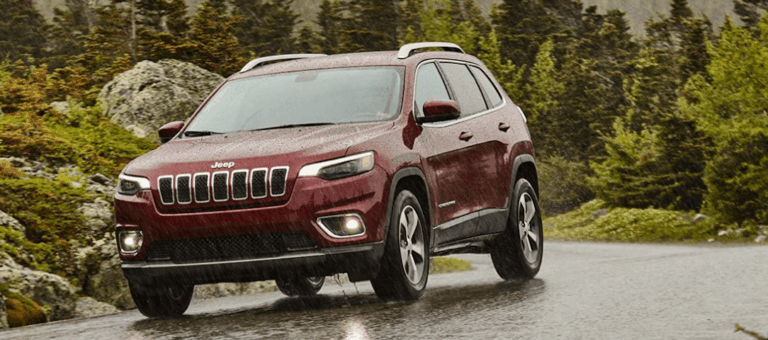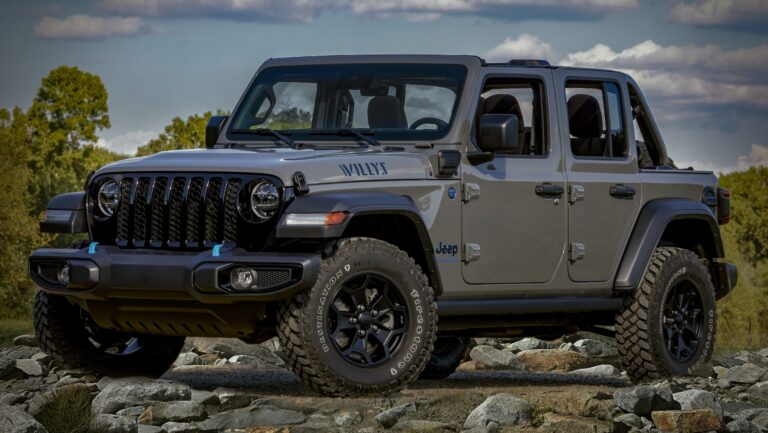Land Runner Jeep For Sale: Your Guide to Owning an Off-Road Legend
Land Runner Jeep For Sale: Your Guide to Owning an Off-Road Legend jeeps.truckstrend.com
Introduction: The Allure of the Land Runner Jeep
In a world dominated by sleek, mass-produced vehicles, the "Land Runner Jeep" stands as a testament to rugged individualism, raw power, and an unyielding spirit of adventure. While not a factory-produced model from a major automotive brand, the term "Land Runner Jeep" has become synonymous in many regions, particularly in Southeast Asia, with custom-built, incredibly durable, and highly capable off-road vehicles that often draw their inspiration from classic Jeep designs. These are not mere cars; they are workhorses, trail conquerors, and symbols of a simpler, more robust era of motoring.
Land Runner Jeep For Sale: Your Guide to Owning an Off-Road Legend
The importance and relevance of a Land Runner Jeep for sale lie in its unique blend of affordability, unparalleled durability, and remarkable versatility. For those seeking a vehicle that can navigate treacherous terrain, haul heavy loads, or simply offer an authentic, unadulterated driving experience, a Land Runner Jeep presents an appealing and often more economical alternative to modern 4x4s. This comprehensive guide will delve into everything you need to know about finding, evaluating, and owning your very own Land Runner Jeep, ensuring you make an informed decision on this iconic vehicle type.
What Defines a Land Runner Jeep? A Deep Dive into its Characteristics
A Land Runner Jeep is less about a specific make or model and more about a type of vehicle – a robust, utilitarian, and often custom-assembled off-road machine. These vehicles are typically characterized by:
- Rugged Construction: Built on a strong, often heavy-duty chassis, designed to withstand severe punishment. Frames are usually solid and over-engineered.
- Diverse Power Plants: You’ll find a wide array of engines under the hood, most commonly reliable and easily maintainable diesel engines (e.g., Isuzu 4JA1, Mitsubishi 4D56, Nissan TD27) or occasionally gasoline engines, often repurposed from other commercial or older passenger vehicles. The emphasis is on torque and reliability over speed.
- Basic but Functional Interiors: Comfort is often secondary to utility. Interiors are typically spartan, featuring durable materials, simple gauges, and minimal electronic components, making them easy to clean and maintain.
- Robust Drivetrain: Most Land Runner Jeeps boast genuine 4×4 capability, often with manual locking hubs and a low-range transfer case, providing superior traction for off-road excursions. Solid axles and leaf spring suspension are common, contributing to their toughness.
- Open-Top or Soft-Top Designs: Many retain an open-air feel, sometimes with removable soft tops or basic canopy structures, enhancing the connection with the environment during off-road adventures.
- Local Craftsmanship: A significant aspect of Land Runner Jeeps is their origin. They are frequently built or heavily modified by local workshops and skilled mechanics, resulting in unique, often one-of-a-kind vehicles that reflect regional engineering ingenuity. This means each "Land Runner" can be quite different from another.

They appeal to a broad audience: from farmers needing a reliable vehicle for agricultural tasks, to small business owners requiring a durable transport solution, to off-road enthusiasts seeking an affordable entry into the 4×4 world, and even adventurers who appreciate the raw, mechanical feel and go-anywhere attitude of these machines.
The Unmatched Benefits of Owning a Land Runner Jeep

Purchasing a Land Runner Jeep isn’t just acquiring a vehicle; it’s investing in a lifestyle and a set of practical advantages that modern vehicles often can’t match:
- Unrivaled Durability and Reliability: Built like tanks, these vehicles are designed to endure the harshest conditions. Their mechanical simplicity means fewer complex parts to fail, and those that do can often be repaired with basic tools and readily available components.
- Exceptional Off-Road Prowess: With high ground clearance, robust 4×4 systems, and excellent approach/departure angles, Land Runner Jeeps are purpose-built for tackling rough terrain, muddy trails, and steep inclines.
- Cost-Effectiveness: The initial purchase price is significantly lower than new 4×4 vehicles. Furthermore, maintenance costs are generally minimal due to the simplicity of their mechanics and the widespread availability of parts (often generic or compatible with other common vehicles).
- Immense Customization Potential: A Land Runner Jeep is a blank canvas. Owners can easily modify and upgrade almost any aspect, from engine swaps and suspension lifts to interior comforts and aesthetic enhancements, tailoring the vehicle precisely to their needs and preferences.
- Versatility Personified: Whether it’s for hauling goods, transporting people in rural areas, serving as a farm vehicle, or providing thrilling weekend adventures, the Land Runner Jeep adapts to a multitude of roles with ease.
- Unique Character and Nostalgia: Owning a Land Runner Jeep means driving something with personality and history. They stand out from the crowd, evoking a sense of nostalgia for classic utility vehicles and embodying a spirit of rugged independence.

Important Considerations Before Buying Your Land Runner Jeep
While the allure is strong, prospective buyers must approach the purchase of a Land Runner Jeep with careful consideration. Given their custom nature, a thorough evaluation is paramount:
- Vehicle Condition is Paramount: This is not a showroom vehicle. Frame rust, engine health, drivetrain integrity, and electrical systems must be meticulously inspected. Look for signs of major accidents, poor repairs, or hidden damage.
- Legal Documentation and Registration: Crucially, verify all legal documents: Original Receipt/Certificate of Registration (OR/CR), deed of sale, and any transfer of ownership papers. Ensure the vehicle’s engine and chassis numbers match the documents. For custom builds or heavily modified units, confirm their legality for road use in your region.
- Maintenance History and Parts Availability: Inquire about the vehicle’s maintenance history. Are parts for the specific engine and drivetrain readily available in your area? Is there local expertise for repairs?
- Intended Use vs. Vehicle Capability: Be honest about your primary use for the Jeep. A heavily modified off-roader might not be ideal for daily city driving, and vice-versa. Match the vehicle’s condition and features to your specific needs.
- Budget Beyond Purchase Price: Factor in potential immediate repairs, desired upgrades, registration fees, and insurance costs. A low purchase price might hide significant deferred maintenance.
- Mandatory Pre-Purchase Inspection: Never buy without a comprehensive inspection by a trusted, independent mechanic familiar with these types of vehicles. Ideally, test drive it on varied terrain to assess its performance under different conditions.
Where to Find Land Runner Jeeps For Sale
Locating a Land Runner Jeep for sale requires a bit of savvy, as they aren’t typically found on traditional dealership lots:
- Online Marketplaces: Websites like OLX, Facebook Marketplace, and local classifieds are prime hunting grounds. Use specific search terms like "Land Runner Jeep," "custom jeep," "owner type jeep," or "jeepney type."
- Specialized Used Vehicle Dealerships/Brokers: Some smaller, independent dealerships or brokers may specialize in used utility vehicles or custom builds.
- Word of Mouth and Local Communities: Networking within off-road clubs, mechanics’ shops, and rural communities can often lead to private sellers. These informal channels can sometimes reveal hidden gems.
- Direct from Owners: Buying directly from an owner allows you to gather more detailed history and maintenance records, and potentially negotiate a better price.
The Buying Process: A Step-by-Step Guide
Navigating the purchase of a Land Runner Jeep can be straightforward if you follow these steps:
- Define Your Needs and Budget: Before you even start looking, determine what you need the Jeep for (work, recreation, daily driver) and set a realistic budget that includes potential post-purchase expenses.
- Research and Identify Potential Sellers: Use the channels mentioned above. Filter listings by your budget, location, and desired features (e.g., 4×4, diesel engine).
- Initial Contact and Information Gathering: When you find a promising listing, contact the seller. Ask specific questions about the vehicle’s history, engine type, transmission, 4×4 functionality, maintenance records, and reasons for selling. Request photos of problem areas if not already provided.
- Thorough Inspection (Pre-Purchase): This is the most critical step.
- Engine and Drivetrain: Check for leaks, unusual noises, smoke from the exhaust, and proper engagement of gears and 4×4 system.
- Chassis and Body: Inspect for severe rust, especially on the frame, suspension mounting points, and floorboards. Look for signs of previous accidents or shoddy repairs.
- Suspension and Brakes: Test the suspension for excessive sag or stiffness. Check brake pedal feel and effectiveness.
- Electricals: Test all lights, gauges, wipers, and any other electrical components.
- Test Drive: Drive the Jeep on various surfaces, including some rough terrain if possible. Listen for strange noises, check steering responsiveness, and assess overall handling.
- Bring a Mechanic: Absolutely bring a trusted mechanic who specializes in older or custom vehicles. Their expertise can save you from costly mistakes.
- Verify Documentation: Insist on seeing the original OR/CR. Cross-reference the chassis and engine numbers with the physical vehicle. Ensure there are no encumbrances or pending violations. Prepare a legally binding deed of sale.
- Negotiation: Based on your inspection and the market value, negotiate the price. Be prepared to walk away if the seller is unwilling to budge on major issues or an unreasonable price.
- Finalize Sale and Transfer Ownership: Once an agreement is reached, complete the deed of sale and ensure proper transfer of ownership at the relevant government agency (e.g., Land Transportation Office in the Philippines). Keep copies of all documents.
Tips for Maintaining Your Land Runner Jeep
Owning a Land Runner Jeep means embracing a hands-on approach to maintenance. Their simplicity is a virtue here:
- Regular Fluid Checks: Consistently monitor engine oil, coolant, brake fluid, power steering fluid, and differential fluids. Change them according to a schedule or based on usage.
- Undercarriage Inspection: After any off-road excursion, inspect the undercarriage for damage, loose components, or debris.
- Rust Prevention: Land Runner Jeeps are prone to rust. Regularly clean the vehicle, especially after driving through mud or saltwater. Address any rust spots immediately with wire brushing and rust-inhibiting primers/paints.
- Tire Care: Maintain proper tire pressure, rotate tires regularly, and inspect for wear and tear, especially if frequently off-roading.
- Lubrication: Keep all moving parts, particularly suspension components and universal joints, properly greased.
- Listen to Your Jeep: Pay attention to any new noises, vibrations, or changes in performance. These are often early indicators of potential problems.
- DIY vs. Professional: Learn basic maintenance tasks yourself (oil changes, filter replacements). For more complex repairs, seek out mechanics experienced with older or custom vehicles.
Potential Challenges and Solutions
While robust, owning a Land Runner Jeep can present unique challenges:
- Challenge: Lack of Standardized Parts: Since they are often custom builds, finding exact replacement parts can be difficult.
- Solution: Develop a network of specialized parts suppliers. Many components are generic or adaptable from other common vehicles. Local fabrication shops can also create custom parts.
- Challenge: Undocumented Modifications: Previous owners might have made unrecorded modifications, leading to confusion or legal issues.
- Solution: Thorough pre-purchase inspection by a knowledgeable mechanic. If buying, ensure all modifications comply with local regulations or can be made compliant.
- Challenge: Rust is a Constant Battle: Especially in humid climates or if used near saltwater, rust can be pervasive.
- Solution: Proactive rust prevention and immediate treatment of any developing rust. Consider professional undercoating and regular cleaning.
- Challenge: Fuel Efficiency: Older engines and heavy builds often mean higher fuel consumption.
- Solution: Regular engine tune-ups, maintaining proper tire pressure, and adopting a conservative driving style can help. For long-term improvement, consider an engine swap to a more modern, fuel-efficient diesel (though this is a major undertaking).
- Challenge: Comfort and Refinement: They are utility vehicles, not luxury cars. Long drives can be tiring.
- Solution: Upgrade seats for better ergonomics, add sound deadening materials, or consider suspension modifications for a smoother ride. These improvements, however, might compromise some of their rugged simplicity.
Price Table: Land Runner Jeep For Sale (Estimated)
Please note: The prices for Land Runner Jeeps vary significantly based on location, engine type, drivetrain, the quality of the build/restoration, and the overall condition. The table below provides estimated ranges for general guidance.
| Condition Category | Engine Type (Common) | Drivetrain (Common) | Key Features / Notes | Estimated Price Range (USD) |
|---|---|---|---|---|
| Project / For Restoration | Mixed (Often non-running or problematic) | Mixed (Condition unknown) | Significant rust, engine/transmission issues, incomplete. Ideal for full rebuild. | $1,000 – $3,000 |
| Fair / Running Condition | Diesel (e.g., Isuzu, Mitsubishi) | 4×2 or 4×4 (Basic) | Runs and drives, but needs immediate repairs, cosmetic work, or major overhaul. | $3,000 – $6,000 |
| Good / Usable Condition | Diesel (e.g., Isuzu, Mitsubishi) | 4×4 (Functional) | Daily driver capable, minimal rust, engine/drivetrain in good working order, minor cosmetic flaws. | $6,000 – $10,000 |
| Excellent / Recently Restored | Diesel (e.g., Isuzu, Mitsubishi) | 4×4 (Fully functional) | Professionally restored or very well-maintained. Clean chassis, reliable engine, good paint, upgraded features. | $10,000 – $18,000+ |
Disclaimer: These are broad estimates. Prices can fluctuate wildly based on specific components (e.g., a modern turbo-diesel engine swap, heavy-duty axles), custom fabrication, and market demand in a particular region.
Frequently Asked Questions (FAQ)
Q1: Is "Land Runner Jeep" a specific brand or model?
A1: No, it’s not a brand like Jeep or Toyota. "Land Runner Jeep" is a colloquial term, often used to describe custom-built or heavily modified utility vehicles, frequently inspired by classic Jeep designs, and known for their ruggedness and off-road capability. They are typically assembled by local fabricators and mechanics.
Q2: Are Land Runner Jeeps street legal?
A2: In many regions where they are common, yes, they can be street legal if properly registered and compliant with local vehicle regulations (e.g., working lights, brakes, valid registration). However, due to their custom nature, it’s crucial to verify all documentation and ensure compliance with your specific local Land Transportation Office (or equivalent).
Q3: What’s the typical fuel consumption for a Land Runner Jeep?
A3: Fuel consumption varies greatly depending on the engine type (diesel is generally more efficient than gasoline), vehicle weight, drivetrain (4×2 vs. 4×4), and driving style. Older diesel engines might offer around 8-12 km/L (approx. 18-28 MPG), while gasoline engines might be lower. They are not known for their fuel efficiency compared to modern vehicles.
Q4: Can I use a Land Runner Jeep as a daily driver?
A4: Yes, many owners use them as daily drivers, especially in areas where roads are rough or traffic is heavy. However, be prepared for a less refined and comfortable ride compared to modern cars. They are best suited for those who prioritize utility and ruggedness over luxury.
Q5: How easy are Land Runner Jeeps to repair?
A5: Generally, they are very easy to repair due to their mechanical simplicity and the widespread availability of parts (often generic or compatible with other common vehicles). Many repairs can be done by a competent DIY mechanic, and local shops are usually well-versed in their maintenance.
Q6: What should I look for to avoid buying a "lemon"?
A6: The most critical steps are a thorough pre-purchase inspection by an independent mechanic, a comprehensive test drive (on varied terrain), and meticulous verification of all legal documents. Watch out for excessive rust on the frame, engine smoke, grinding noises from the drivetrain, and any signs of poorly done repairs.
Q7: Can I customize a Land Runner Jeep further after purchase?
A7: Absolutely! Customization is one of the biggest appeals. From engine swaps and suspension upgrades to interior modifications and aesthetic enhancements, these vehicles offer endless possibilities for personalization to suit your specific needs and tastes.
Conclusion: Your Adventure Awaits
The "Land Runner Jeep" represents more than just a mode of transport; it embodies a spirit of adventure, resilience, and practicality. For those who value durability, off-road capability, and a unique driving experience over modern comforts, a Land Runner Jeep for sale offers an unparalleled opportunity. While requiring careful consideration and a thorough inspection process, the rewards of owning such a robust and versatile machine are immense.
Whether you’re traversing challenging trails, hauling goods for your livelihood, or simply seeking a vehicle with character and a story, the Land Runner Jeep stands ready to be your loyal companion. With the right research, a meticulous approach to inspection, and a commitment to maintenance, you can embark on an ownership journey that is as rewarding and adventurous as the vehicle itself. Your Land Runner Jeep awaits, ready to conquer new horizons with you behind the wheel.



